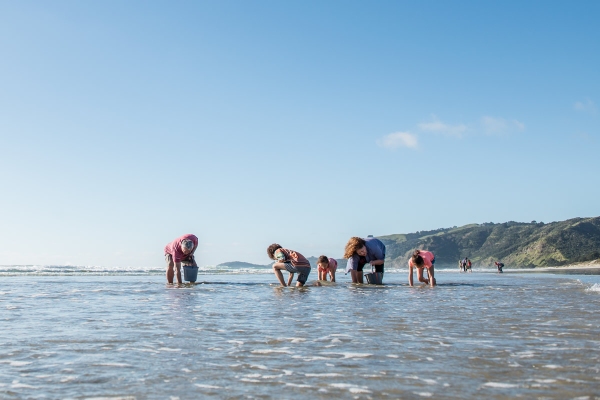When you’ve spent a long time viewing something a particular way, it’s hard to recognise when it changes.
In this issue of Water & Atmosphere, Marino Tahi, NIWA’s Māori strategy manager, says that Māori organisations have changed significantly – they have become very sophisticated in the way they merge their aspirations for Māori and environmental wellbeing with their commercial opportunities.
For some time now we have seen the sophistication in the critical role Māori play in the co-management of freshwater and the rehabilitation of lost or faded Māori values and ecosystems.
Tangata whenua are looking for constructive and proactive approaches that reflect iwi aspirations in matters such as freshwater management, and we’re seeing challenges confronted and innovative solutions implemented.
This step change is palpable in the national strategies and commercial collaborations Māori are pulling together in red meat, fisheries, forestry, and manuka honey. These are being driven by Māori business networks such as the Federation of Māori Authorities (FOMA), Te Tumu Paeroa, Tuhono Whenua, and the Poutama Trust.
Māori demand for multi-disciplinary science and advice
For Crown Research Institutes, the sophistication can be seen in Māori demand for multi-disciplinary science and advice to underpin strategic planning and investment decisions.
They want monitoring and data to aid planning and decision making that improves productivity, regulatory compliance, and the ability to meet market, shareholder and community expectations.
This demand poses an intriguing challenge for the science sector. We certainly have the expertise, but across the board there are too few Māori scientists who can work at the interface between Te Ao Māori and the science world. It’s not enough to be well-intentioned. Māori want people who share their aspirations and values, and understand the Māori world view.
As well as understanding cultural and commercial imperatives, Māori and tribal development requires people skilled in sciences (biophysical/social), policy and planning, knowledge visualisation and data delivery.
Long established reputation for working closely with iwi
NIWA’s Māori development and engagement team – Te Kūwaha – does have critical mass and has a long established reputation for working closely with iwi to incorporate science and mātauranga, and to help foster and develop young Māori scientists.
The 12-strong unit sees itself as science and commercial specialists who know how their Māori partners operate and think. They share the values of kotahitanga (partnership), manaakitanga (caring, hospitality), whānaungatanga (fostering relationships) and kaitiakitanga (stewardship or guardianship of the environment).
The team works with iwi and Māori businesses to maximise the value of their interests in agribusiness, fisheries, aquaculture and energy sectors.
When people change, you need to see the transformation before you can respond and change with them.
John Morgan is Chief Executive of NIWA
[This feature appeared in Water & Atmosphere, October 2016]

